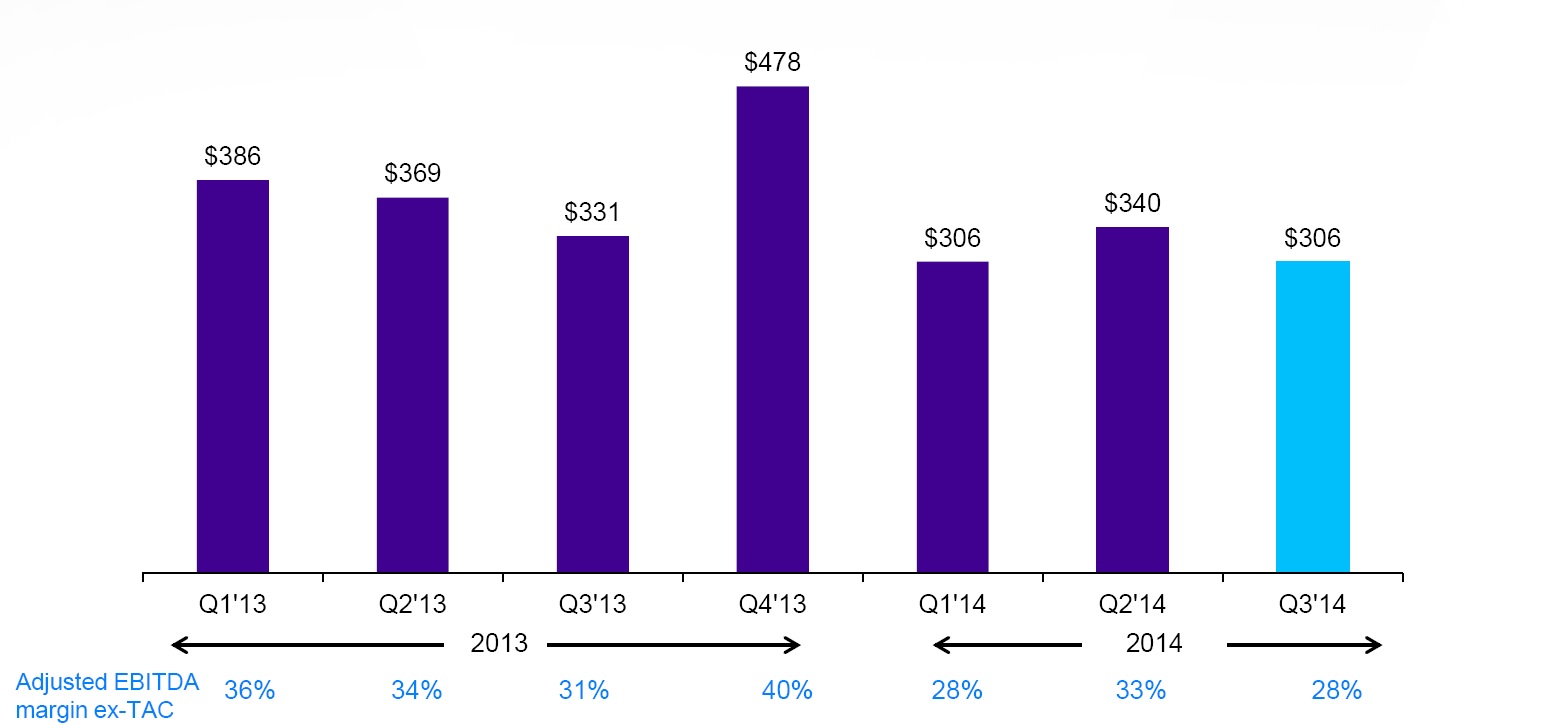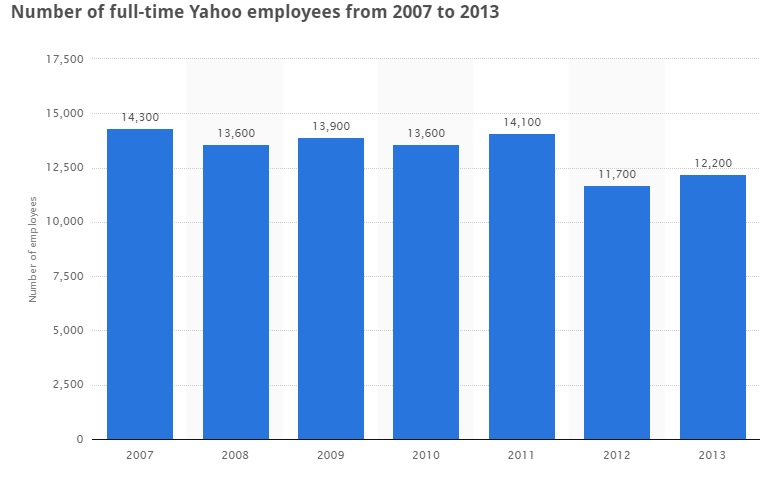
Yesterday, I ran across this piece from Business Insider by Nicholas Carlson in promotion of his new book Marissa Mayer and the Fight To Save Yahoo! The article delivers to us a very riveting story in which an out of touch patronizing Mayer reads a children's tale to a bunch of Yahoo! employees. Her reports are eagerly awaiting answers to their pressing issues and have gathered together for the town hall meeting. However, for this meeting CEO Mayer is not her normal self. She is agitated and nervous while her staff are worried and confused. The mood in the room is the polar opposite to that of her first all hands on deck meeting. There are no cheers this time around but lots of exasperation. Her honeymoon has ended.
In the excerpt Marissa totally avoids the matter at hand and many are left feeling frustrated and angry. Her tale doesn't go down well and very few even get her intended point. In reality, this scenario plays out as I would expect. Most CEOs I know when cornered and confronted would rather talk about something else especially when they don't share the view of their employees. No one dreams about being the bearer of bad news. Unfortunately, on that day her team didn't want to hear any metaphors about how she has been enjoying her experience instead they wanted to know why the company is spending so much money to acquire failed startups, when fairness would return in terms of income distribution between new hires and the rest of the permanent staff and most importantly when will the dreaded QPRs be redesigned or preferrably terminated. My is guess that reciting a fairytale seemed better than simply saying no.
The Quarterly Performance Reviews (QPRs) process as described by Carlson is a performance management system that bears many similarities with Microsoft's Stack Ranking system. Individual performance is measured in terms of relative ranking between peers on a per team or department basis. Incentives, promotions and mobility are tied to a person's average ranking over a set number of periods. Where the Yahoo! system most resembles Microsoft's is in the forced performance "bell curve" that it imposes by placing 25% of employees in the under performning bucket. Anyone who consistently hit the bad bucket was asked to leave the company.
At first glance this appears great from a management standpoint since it allows the company to develop a sense of urgency and renew itself simultaneously. Everyone has to race to achieve their goals by end of quarter less they end up in the bad bucket. In addtion, it allows the business to refresh people in a more structured and objective fashion by continually removing non performing members without having to go through the trauma and costs associated with a one time mass layoff regime. Changing corporate culture is tough business but this was one clever way to achieve transformation.
On the flip side ranking systems make mistakes and occasionally the wrong people are pushed aside. Brilliant minds can be lost because they are the dimmest star on an all star squad. Some do not even get the chance to be reallocated to a unit where they would be more effective and improvements made by some are overlooked. Bias will creep into the process, people are political and the truth maybe that rankings are massaged to fit favourites. It can be argued that this happens no matter the system. However, the more relevant point is what opponents view as the inherent weakness evident when utilizing ranking methodology to derive performance metrics. Its weakness is the promotion of insular one track thinking that stiffles innovation becauses it punishes radical ideas that do not fit or contribute to the short term objectives. Additionally by fostering such a fiercely competitive environment management damages collaboration across teams.
All the above is true but so is the contrary. Rankings don't stop companies like Apple from innovating and competing successfully. Apple may not have stack ranking but it had something worse. It had Steve Jobs and no ranking system could be more arbitrary or demanding. Apple out innovated everyone but maintained internal friction. It had secretive teams that competed against one another where the winning team took it all. Let's not forget the legendary rivalry between Fadell and Forstall. As for collaboration, Microsoft had and continues to have some of the most integrated products on the market. Nothing is more of duopoly than Office and Windows and Office on Windows. Under Ballmer Microsoft collaborated just fine, with itself. The problem was that it didn't collaborate well with standards or anything else that didn't fit its Windows based universe. You just have to ask any web developer who has ever tried to get a webpage look right on IE when it is rendering fine everywhere else. It is Windows why it failed on Mobile not because its people were fighting with each other. From what I see ranking works exceedingly well and does deliver on the goals set. The dilemma is when those goals are plain awful. Everyone jumps over each other to execute perfectly the wrong tasks. Thus, the company produces bad results in the long run.
At this stage I must admit I haven't read Carlson's book and have no idea of the inner workings of Yahoo or its board. Nevertheless, I will posit that Mayer may have rejected the need for immediate head trimming as she wanted time to understand the business and had no equitable way without a QPR type initiative of determining who should go. Indeed, it would seem that she placed her bet on being able to whip the team into shape quickly by creating a culture that can act faster and iterate products at speed without second guessing. Sounds like a more competitive culture to me. Sounds very QPR.
As engrossing as the preview was Carlson I think danced around the point. He doesn't say what those company wide goals were. Is it the review process or the targets? You see, what's really interrupting her honeymoon is decling revenue and EBITDA like the below.

Source: Yahoo!
With total acquisition and operating costs rising not to mention headcount. Yahoo! is going to need something to satisfy the bayesian investor now that the Alibaba IPO has passed. It requires another sweet treat to happen really fast.

Source: Statista.
Yahoo! needs to come to terms with what it is. It is not a media company. It is a Google without all the profitable parts. A search provider that can't find interesting things isn't sexy or very profitable. It has to develop compelling low cost services that take people directly to where they want to go and not distract them with a confusing portal page.
Google figured this out long ago and never had clutter on the homepage. The homepage is all about finding images, news, web links etc but importantly it is all driven by the user. If you want to be the portal of the internet then build a browser or go on the phone a la Chrome and Android. The user agent is the only true portal to the web. Value for Yahoo! and the last good thing it did, Hadoop, comes from having lots of users and knowing even more about them. Knowledge, that's what it sells to advertisers, the real customers.
Ranking hasn't done it in but if it keeps repeating the 3rd grade it is going to get expelled from school. Set the right goals. Finding data is your mission. Yahoo! start learning. Learning to add value.
 Nneko Branche.
Nneko Branche.